According to Ms. Nguyen Thi Thanh, organic dragon fruit production is not too complicated, the key factor for success is perseverance and seriousness.
The red-fleshed dragon fruit garden of Ms. Nguyen Thi Thanh’s family in Van Truc commune (Lap Thach district, Vinh Phuc) is bustling with traders competing to buy these days. Many people do not hesitate to pay 1 to 2 times higher prices in the hope of getting boxes of quality dragon fruit.
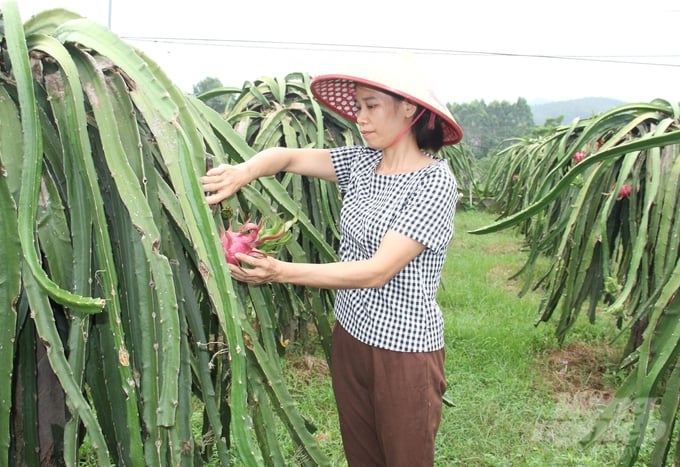
According to Ms. Nguyen Thi Thanh, to successfully grow dragon fruit organically, one must be persistent and serious. Photo: Trung Quan.
According to Ms. Thanh, the reason for such joy is because all 500 dragon fruit pillars of her family are grown organically, "saying no" to pesticides and chemical fertilizers, so traders really like them because of their delicious quality and guaranteed food safety.
In 2021, her family got involved in organic farming with technical support from the Department of Crop Production and Plant Protection, the Provincial Agricultural Extension Center and input materials (organic fertilizers, biological products) from Que Lam Phuong Bac Company (belonging to Que Lam Group).
In the early stages of approaching the new form of farming, she was uncertain and worried. However, practice makes perfect. She learned as she went, and realized that organic production was not too complicated or different from conventional production in the past.
The only difference is that all organic and biological inputs are used instead of chemical inputs to improve nutrition, porosity, create conditions for beneficial microorganisms in the soil to develop and protect the environment. From there, it helps plants to easily absorb nutrients, grow and develop healthily, increase resistance to pests and diseases...
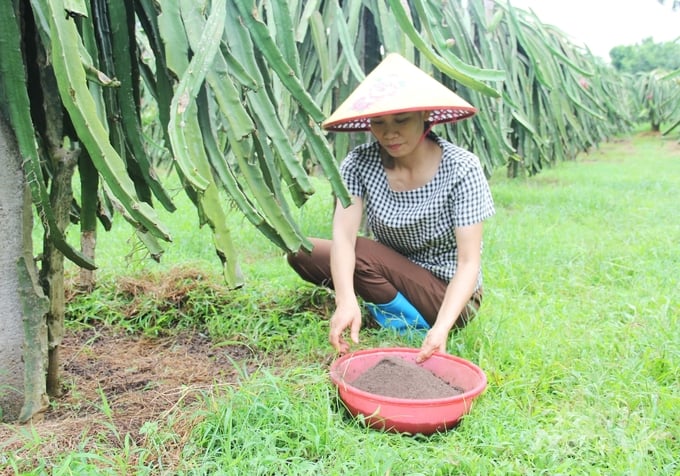
Using organic fertilizers instead of chemical fertilizers helps increase the amount of nutrients and looseness of the soil. Photo: Trung Quan.
Ms. Thanh shared that the key factor to successfully growing dragon fruit organically is perseverance and seriousness. Because, long-term use of chemical materials makes the soil hard and lack of nutrients. Plants are used to absorbing nutrients that dissolve quickly, so when converting, it takes a long time to gradually increase the organic ratio provided to the plants before proceeding to replace it completely.
The amount of organic fertilizer used for 1 dragon fruit pillar each year is about 50kg (on average, 4 times a year, each time 12-13kg/pillar) and periodic spraying of biological pesticides. The cost of these materials is higher than using chemical materials. Therefore, if growers are not persistent, strictly follow organic production techniques, do not change their cheap and careless habits, they will not be able to do it.
According to Ms. Thanh, through monitoring, the average yield of dragon fruit when grown organically is from 25 - 30 kg/pillar/year (not too different from conventional production). However, the other benefits gained are not small.
The dragon fruit garden is located around the family's living area, so since no chemicals are used, the environment becomes cleaner and the family's health improves. In addition, when the "health" of the soil is increased, the plants become healthier, more durable, and help reduce a lot of care work.
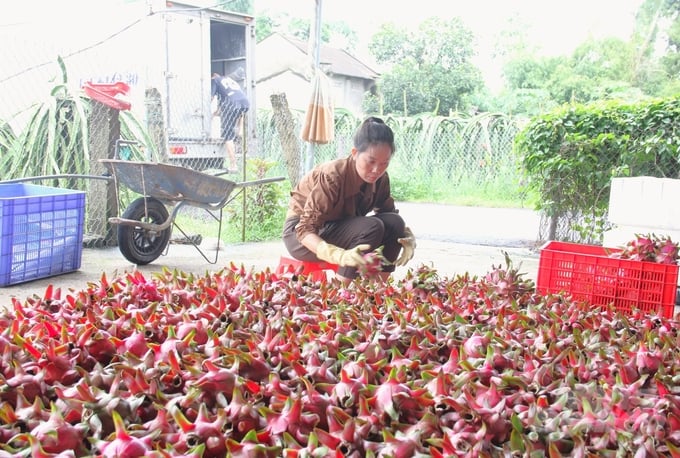
Organically grown dragon fruit is very popular with traders so the selling price is always kept high. Photo: Quang Dung.
In particular, the product creates convenience in consumption, meeting the increasingly strict requirements of the market on quality and food safety. Thanks to that, the selling price is always 5,000 - 7,000 VND/kg higher than conventionally cultivated products.
“Everyone can see the benefits of organic farming and its safety. The growers themselves are not afraid of change. However, the most important thing is to have a market, a stable output with a good price for this product line to stimulate the majority to change farming methods based on chemical materials,” Ms. Thanh confided.
Source: https://nongsanviet.nongnghiep.vn/kien-tri-nghiem-tuc-trong-thanh-long-huu-co-d396331.html


![[Photo] General Secretary To Lam, Secretary of the Central Military Commission attends the 12th Party Congress of the Army](https://vphoto.vietnam.vn/thumb/1200x675/vietnam/resource/IMAGE/2025/9/30/9b63aaa37ddb472ead84e3870a8ae825)
![[Photo] The 1st Congress of Phu Tho Provincial Party Committee, term 2025-2030](https://vphoto.vietnam.vn/thumb/1200x675/vietnam/resource/IMAGE/2025/9/30/1507da06216649bba8a1ce6251816820)
![[Photo] President Luong Cuong receives President of the Cuban National Assembly Esteban Lazo Hernandez](https://vphoto.vietnam.vn/thumb/1200x675/vietnam/resource/IMAGE/2025/9/30/4d38932911c24f6ea1936252bd5427fa)
![[Photo] Panorama of the cable-stayed bridge, the final bottleneck of the Ben Luc-Long Thanh expressway](https://vphoto.vietnam.vn/thumb/1200x675/vietnam/resource/IMAGE/2025/9/30/391fdf21025541d6b2f092e49a17243f)

![[Photo] Solemn opening of the 12th Military Party Congress for the 2025-2030 term](https://vphoto.vietnam.vn/thumb/1200x675/vietnam/resource/IMAGE/2025/9/30/2cd383b3130d41a1a4b5ace0d5eb989d)



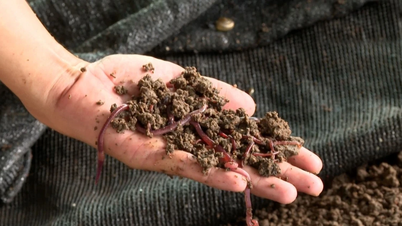

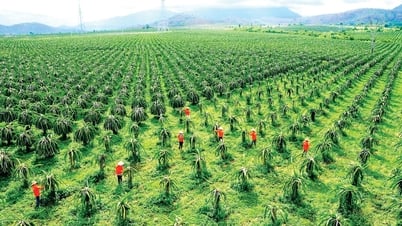
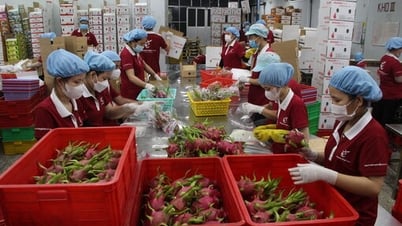

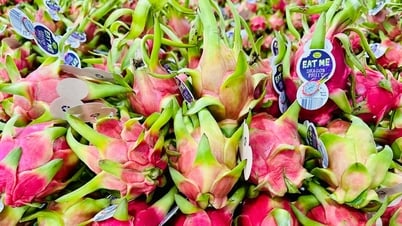
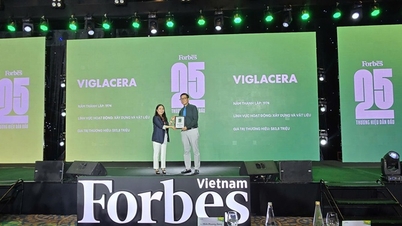

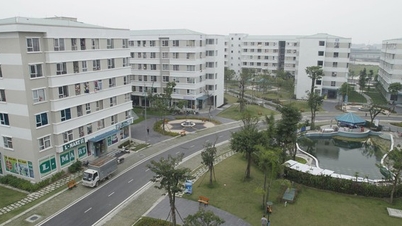


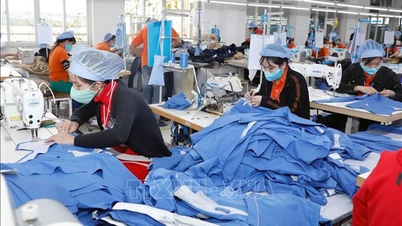


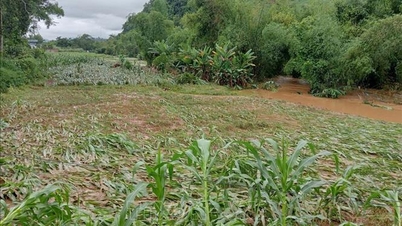








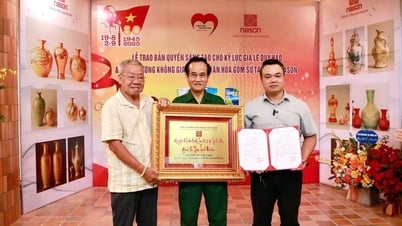




































































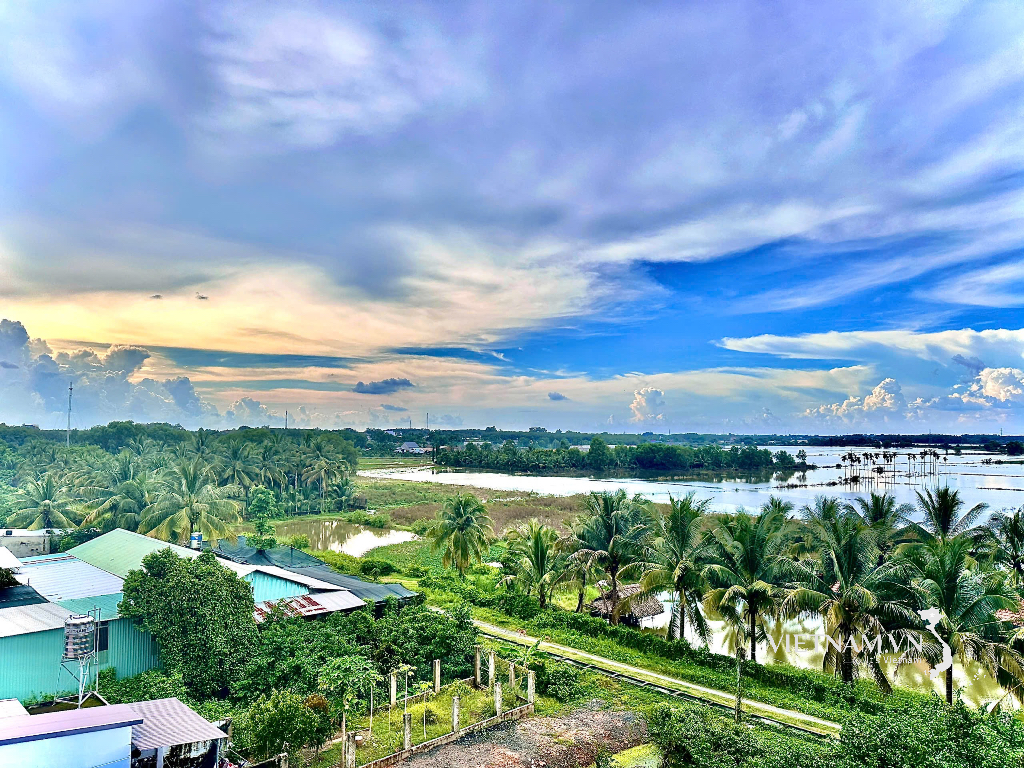
Comment (0)